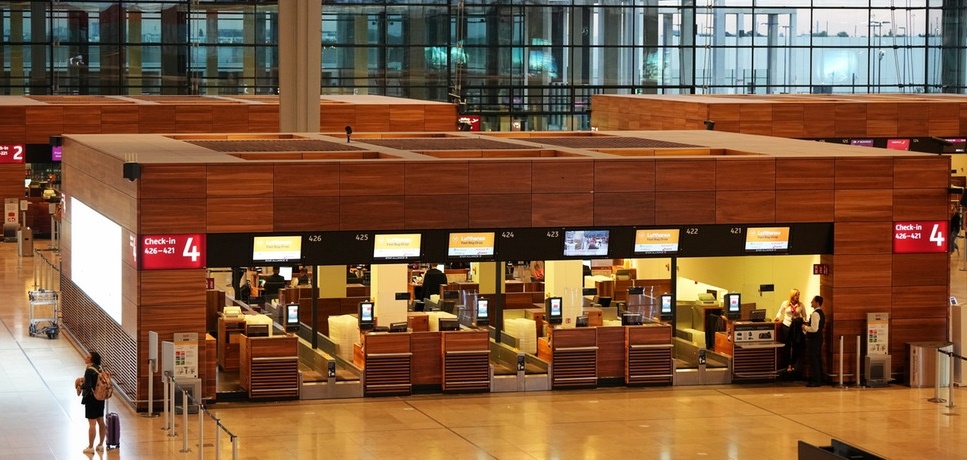Warning strike paralyzes Berlin airport
A capital cut off from air traffic: due to a day-long warning strike, all flights at Berlin-Brandenburg Airport are canceled today.

Around 35,000 passengers are affected – and the fronts in the tariff dispute hardened.
Things are much quieter than usual at the capital’s Berlin-Brandenburg Airport (BER). Because of a warning strike, passenger planes will neither take off nor land there. Because the wage negotiations for the ground handling services, the airport company and aviation security are apparently not making any decisive progress, the ver.di trade union has called a all-day warning strike. This affects around 6,000 employees and around 35,000 passengers.
“Warning strike lacks acceptable basis”
“Due to the announced warning strike at Berlin-Brandenburg Airport, no passenger flights are possible on Wednesday, January 25, 2023,” said BER after ver.di announced at the beginning of the week. The airport company has informed its partners such as airlines, ground handling service providers, security companies and local businesses about this. According to BER, around 300 take-offs and landings were planned: “Affected passengers are asked to contact their airline for information about rebooking and alternative travel options”.
According to ver.di, the warning strike begins at the beginning of the early shift and ends late in the evening. “The strikers will gather from 8 a.m. in front of the terminal building on Willy-Brandt-Platz, where a rally will be held from 10 a.m. to around 11:30 a.m..” The union expects up to 1,500 participants. “To describe a one-day strike as a warning strike is unusual,” said Lufthansa CEO Carsten Spohr. As a result, the capital is cut off from the outside world in terms of air traffic.
Because: In order to maintain regular flight operations, the employees affected by the collective bargaining work in too central places. Ground handling services are responsible for refueling aircraft, loading and unloading aircraft and checking in passengers. The airport company employs traffic management, airport security – and also the fire brigade staff. The nationwide airport association ADV criticized that the warning strike was inappropriate and lacked any acceptable basis. “Instead of carrying out the different tariff ideas at a common negotiating table, Germany’s capital airport is being misused as a public platform,” said managing director Ralph Beisel.
No solution is in sight in all three areas
Ver.di demands 500 euros more per month for the employees of the ground handling services with a contract period of twelve months. The employer side, on the other hand, wants gradual wage increases, a term of 36 months and the introduction of experience levels. At BER, the companies Swissport, Airline Assistance Switzerland and Wisag are currently in action for ground handling services. Negotiations have been going on for the approximately 2,000 employees since the beginning of December. For the employees of the airport company, the union is also fighting for 500 euros more per month with a twelve-month contract period.
“The employer’s current ideas are far behind the demands of the employees, both in terms of the increase and the term,” ver.di said. In the second round of negotiations, the employers proposed three percent more from June 1 and a further two percent more from May 1, 2024, all with a term until the end of 2024 federal government would be tax-free. “According to the unanimous opinion of the collective bargaining commission, this offer is unacceptable, insufficient and disappointing in terms of structure, amount and duration,” said the trade unionists.
According to ver.di, negotiations are taking place nationwide for employees in aviation security, but in seven rounds of negotiations there was “actually no progress”. “To date, there has been no signal from employers that they even want to find a solution,” the union said. Negotiations are therefore being made about an “increase in the time supplements for night, Sunday, public holiday and Saturday work and better collective bargaining regulations for the payment of overtime”.




